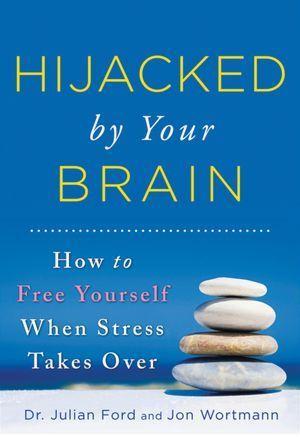Why is it, on occasion, pros like Rory McIlroy begin by playing one of the greatest rounds of golf and end up with one of the ugliest scorecards at the end of eighteen holes? What happens when that mental breakdown occurs and what can be done to stop it?
I received an email today which prefaced these questions with a reminder of McIlroy's falling out at the 2011 Masters: from erratic drives to some of his worst putting and chipping, Rory's golf game completely unravelled. Why? Jon Wortmann, University of Connecticut golf coach and leading stress-relief expert Dr. Julian Ford believe that McIlroy ignored his stress instead of 'acknowledging it, labeling it and embracing it.'
Since that fateful Masters, McIlroy has considerably upped his game. Instead of stressing that he was trailing in the DP World Tour Championship in Dubai, Rory kicked it up a notch when he needed it most and birdied the final five holes to win. European Tour Golfer Paul McGinley called Rory "Tiger-esque" as Woods "laid down the platform over the last decade as to how to go into overdrive in a tournament."
Rory McIlroy stepped up his game, acknowledged his position, embraced it and moved forward with momentum: Tiger Woods although once the teacher of stress management, has done much damage to himself and to his golf game through "suffering and self-sabotage" and, due to this ongoing trauma, may never return to his former greatness.
Although the average golfer may never achieve the focus that either McIlroy or Woods can actualize during a round of golf, the combined efforts of Wortmann and Ford have written, "Hijacked By Your Brain: How to Free Yourself When Stress Takes Over" offering easy, do-it-yourself strategies you need to know to make stress work for you, not against you.

Here are a few golf tips written by Wortmann to help improve your confidence and limit stress on the course:
1. "We try to hit the ball harder." The moment we think about hitting the ball further than we usually do, it triggers an alarm (the amygdala) in our brain. Our brain knows our driver usually goes a certain distance. It knows what our go-to or stock swing feels like. The moment we try to get a little more out of it, our brain knows it's not possible, it wants to prevent us from making a mistake, and the ensuing tightness from the stress response causes a tight swing. Tight swings produce over the top snap hooks or blocks when we don't release the club.
2. "We try to make putts." When we try to make a putt, we focus on the result rather than the process of making a great stroke. The only things we can control when putting is the direction we start the ball and how hard we hit it. Just like trying to hit the ball too far, our alarm wants us to stay focused on making a good stroke. The thinking center in the brain can only focus on one thing at a time. Thinking about making the putt (the future) makes it impossible to focus our mind and body on what we need to do in the present to make a firm, confident stroke.
3. "We think we can play our best without warming up." Our memories centers in our brains are filled with the great shots of our lives. The problem is some days we've got our "A" game; other days, we can't hit a fairway even if it's 200 yards wide. Warm up is the time where you let the brain see what the body is doing that day so it can help us focus on the shots we know we can execute.
4. "We think there is something wrong with us when we can't take the shots we hit easily on the range to the course." The pressure of playing, whether with buddies or in a tournament, is a totally different environment than the range. The brain doesn't care if you miss a shot on the range. Your alarm cares deeply if you're playing for a score. It doesn't want you to miss, so it sends a stress signal (that's the tight feeling, nervousness, or breathing quickly) to make sure you pay attention to what you're doing. The good news is that the answer to playing better on course is a fun one for every golfer: you simply have to play more on course or in competition and your brain will get used to the pressure (as long as you work on focusing on consistent swings, not hitting it harder or thinking too much about results).
5. "We think one good round means we've figured the game out." Golf is different every shot and every round. That's what makes it challenging. Our brains love a challenge; that's why even playing bad golf can be rewarding. The road to better golf is lumpy, often with more terrible and mediocre rounds than great ones. We have to celebrate the days when we have the energy, time, and serendipity to play well, and realize that the bad rounds are a chance to learn what we need to practice, both the mental and physical skills of the game we love. Celebrating the great rounds as rare and precious is how we value the memory. The stronger our emotional attachments to memories, the more easily we can repeat what we've done well before.
Voice your opinion on Twitter @Golf4Beginners and friend us on Facebook.
Click for more information on "Hijacked By Your Brain: How to Free Yourself When Stress Takes Over"
Posted via email from stacysolomon's posterous

